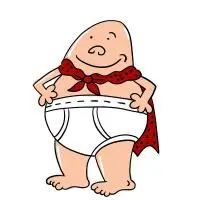Image by Anna Shvets
What do Octavia Estelle Butler, John Irving, and Dav Pilkey have in common?
Other than being awesome writers, they are all dyslexic. Yeah. Read that line again. Dyslexic.
Dyslexia is an annoying reading and writing disorder that often scrambles words, letters, and numbers on a page. How do I know this?
I’m another dyslexic writer.
It’s not ideal. I definitely didn’t set out to become a published author. That was never my plan, and yet here I am writing about writing because I write so damn much, and sometimes my work even gets published.
Every writer faces challenges. It doesn’t matter if they’re as talented as Cormac McCarthy or are still working to find their voice. Obstacles are the name of the game in publishing. Writers must not only be skilled enough to grow an audience, but they also have to be different and interesting enough to stand out.
Doing so with a learning disability is not impossible, just a pain in the ass. I had to make my way from the ground up and learn from my mistakes in order to figure out how to approach my work and the people I wish to submit it to.
I’m always a work in progress. There is no ceiling to my creativity, but there are crap shoots.
For years I didn’t want to hide my dyslexia, but I also refused to acknowledge it with editors and publishers. I sent off my submissions with the usual message.
Dear editor,
Please consider publishing my how-ever-many-word story, genre, “Title.” I’ve published works with credit, credit, credit. Maybe a silly anecdote related to the story if I’m feeling congenial.
Thank you for your time,
Jessica Marie Baumgartner
What often went out was not what you see here.
It looked more like this:
dear edito,
Pleass consider plublishign my so on and so on… I’ve published worls wijhe… Silly anecdote rleted to story if feeling congelina.
Thanks you for your time,
Jessica Marie Baumgartner
(At least I usually got my name right.)
It’s painful to look at because I have trained my brain to search ruthlessly for mistakes. I had to correct so many words in this article. I can’t imagine how much further along I'd be with my WIPs if I didn’t have to stop and take the time to make my brain behave.
Sometimes I miss letters, or they get mixed up. Sight words trick my brain and make it difficult to comprehend my own writing more often than I'd like to admit. The best example I can offer is my struggle with the words “Candy” and “Candle.” They have similar lettering but very different meanings. At first glance they always look the same to me. That is just how my brain works.
(Side Note: Brain and Brian are just the worst. I totally wrote brian in the first draft of this. It’s so frustrating because I know the difference, I just can’t always see it. Maybe I should name my brain biran, but see I was trying to make a joke and I botched that with a new misspelling.)
This goes back to my childhood. It's just life for me. In the fourth grade I had a teacher who pulled my mother and me aside. Instead of presenting my struggles as a deficiency, she told me, “You think so fast your hand just can’t keep up with your brain.”
That gave me the perspective I needed to enjoy writing even though I was not naturally the best at it. I could always tell stories. I love performing for people, but translating thought onto page is a difficult process I have to approach with the right mindset.
That is the perspective I want all writers to have, even if they’re not dyslexic, looking at their work as something to be enjoyed, not torture.
Dav Pilkey is my favorite success story because he has such a great sense of humor about his experiences. Not only is he dyslexic, he was also diagnosed with ADHD as a child. During his school days, his teachers often made him sit in the hall because he was too disruptive, but he used that time to work on his own comics, which led to the creation of Dog Man, Captain Underpants, and my personal favorite series, the Dragon books.
Sherrilyn Kenyon, New York Times, USA Today, and Publishers Weekly Best Seller, is the author of the Dark-Hunter vampire series and also a dyslexic. Speaking about her battle, she has said, “The first book I wrote, most of the letters were backwards and much of it is horribly misspelled, but it didn’t stop me.”
That is the kind of attitude that helps most successful authors meet their goals. Getting help is necessary in most creative fields. Dyslexic or no, feedback is crucial to the creative process. Finding the right editors, publications, agents, beta readers, and support system offers strength and wisdom.
It took me a few too many failures to realize that. Most editors are professional and kind in personal rejection letters, but without disclosing my dyslexia or at least testing my work with a few trusted people before shopping it around, I received some of the most insulting, hurtful responses a writer can get.
It takes time to figure out the best approach. I don’t want special treatment and prefer to perfect my work before submitting it, so I now have a couple of editors and proof-readers to help me. And I take on my own editing jobs to help other people with their work. Which may sound strange, but I can pick apart a manuscript like no other.
Practice also helps. The more I write, the better I understand my brain and gain control over it.
That’s why it’s so important for writers to make time for their craft. Everyone thinks differently. We all come from various backgrounds and have a broad frame-of-reference. The best way to deliver powerful writing with a unique perspective it to know yourself and your ability inside and out.
F. Scott Fitzgerald struggled with this. It is often speculated that if teachers had known about dyslexia in his school days, he would have been diagnosed with it. That speaks worlds to me.
I was lucky enough to be born in a time where being a dyslexic author doesn’t have to be shameful. If given the opportunity to “fix” my brain, I don’t know that I would. It’s the only one I have and I quite like my thought process. I’ve gotten used to it. Things aren’t always as clear as they could be, but that makes me take extra time to pay attention to detail and ponder the little things that other people miss without a second glance.
So if you’re a dyslexic writer, know one, or are just interested in the topic, here’s a list of some popular dyslexic authors who did/are doing just fine with their work:
-
![]() F.Scott Fitzgerald
F.Scott Fitzgerald
- Dav Pilkey
- Jeanne Betancourt
- Richard Ford
- John Irving
- Patricia Polacco
- Octavia Estelle Butler
- Don Mullan
- Eileen Simpson
- Sherrilyn Kenyon
- Alaric Bond
- Anderson Cooper
- Rod Duncan
- Ben Elton
- Esther Freud
- Terry Goodkind
- Andy Kirkpatrick
- Anne Rice
- Philip Schultz
- Sally Vickers
Get The Captain Underpants Color Collection at Bookshop or Amazon

About the author
Jessica Marie Baumgartner is the author of The Golden Rule, The Embracing Entropy Series, My Family Is Different and more. Her writing has won 3 Bards and Sages Magazine Awards, 2 New Apple Awards, 2 Missouri Writer’s Guild Awards, and a Summer Indie Book Award. She is a current member of the Missouri Writer’s Guild, SCBWI, and works mostly with children’s stories and non-fiction, but sometimes fantasy and horror. As a dyslexic Wiccan, Jess loves all types of people, but also writes about Pagan issues and the fun of a brain that works differently.
 F.Scott Fitzgerald
F.Scott Fitzgerald








